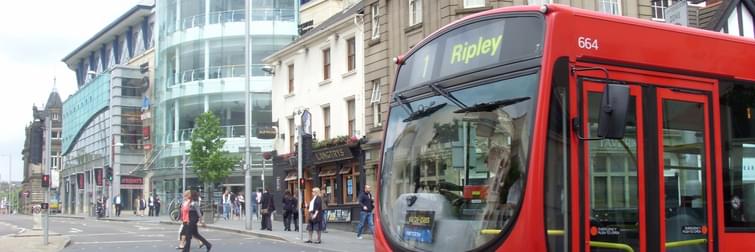
blog: What can the Bus Services Bill expect to achieve?
Tuesday 22nd November 2016
The most-discussed feature of the Bus Services Bill is the easier route to a bus franchising model that it will give some local transport authorities (particularly mayoral combined authorities), following the prolonged process that the North East went through recently. However, in my view, franchising will continue to be an attractive proposition to only a few authorities – other than as a vague threat to operators who resist working in more collaborative partnership arrangements.
While some people might be dazzled by the prospect of a London-style bus network, we mustn't forget that doesnt come solely from the franchising model – it results from strong demand patterns arising from density of population, lack of space for keeping private cars, congestion, and demand management measures (e.g. congestion charge, high parking prices etc). We should also not forget that most of the expertise in planning bus networks these days lies with commercial bus operators, not in county and city halls. So, franchising alone is not a cure-all and has some major risks associated with it.
The more interesting features of the Bill for many authorities will be the changes to partnership possibilities. Advanced Quality Partnerships (AQPs) will broaden the scope for transport authorities to enter into quality partnerships with bus operators in defined areas. These will allow a broader range of measures (e.g. parking policies) rather than just infrastructure (e.g. bus lanes) to be incorporated into the transport authority side of a quality partnership agreement, while broader issues such as marketing and ticketing can be brought in as requirements on operators. These tweaks seem eminently sensible for both authorities and operators setting up partnerships.
Enhanced Partnerships (EPs) are a new possibility set out in the Bill, representing a step-up from AQPs. These allow further requirements to be placed on bus operators in a defined area through an EP scheme that will contribute to a high level EP plan. These may include route requirements that relate to the frequency or timing of bus services, and operation requirements. Operation requirements can include vehicle requirements (e.g. emission standards, onboard audio-visual kit etc), common ticketing arrangements including multi-operator tickets, prices of multi-operator tickets, information provision, and common dates for changing timetables.
However, as with all partnerships, there needs to be support for an EP from all parties before it can be implemented. This is where things get a little hazy. The DfTs published Explanatory Notes to the Bill make it clear that all operators in the EP area must be invited to participate in the preparation of the proposed EP plan and scheme, and there must be sufficient support from operators for the EP plan and scheme to proceed. In the words of the Explanatory Notes, the local transport authority can only proceed further in this process if no more than a sufficient number of operators objected to the plan and/or the scheme(s). The sufficient number may be based on number of operators and/or their market or mileage share. What constitutes a qualifying local service and a sufficient number will be detailed in secondary legislation.On top of this, there's the question of what constitutes an operator in this context – for example, does a bus company operating a minimum-cost subsidised service get the vote, or does the local authority who funds the service and carries the financial risk?
So, as is often the case, the devil is in the detail – the drafting of the secondary legislation will have a massive effect on how easy or difficult it is for authorities to implement EPs that don't have the support of one or two operators.
So, to answer the question posed at the start – the Bill certainly has potential to make changes to the bus service landscape. The franchising powers will probably only be used in a small number of cases around the major conurbations. The partnership powers are of wider interest, but in terms of significant impact from EPs lets wait and see as the devil will decide.
Nick Ayland
ITP Director
